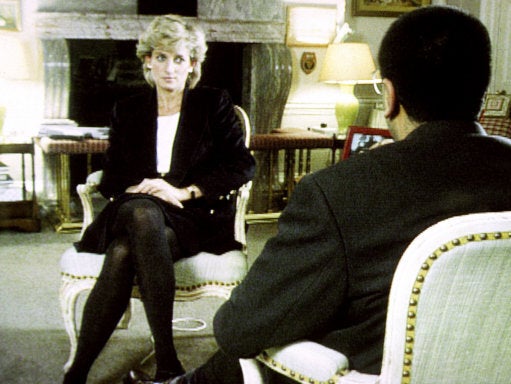BBC must ditch ‘we know best’ attitude after Diana interview scandal, culture secretary says
Oliver Dowden threatens broadcaster with funding or governance changes after damning report into 1995 interview

The culture secretary Oliver Dowden has warned the BBC the Government will “not stand idly by” if the Corporation does not make sweeping cultural changes following the Martin Bashir scandal.
In an article for The Times, Mr Dowden said the recent report into the journalist and his 1995 interview with Princess Diana “has exposed failures that strike at the heart of our national broadcaster’s values and culture”.
The upcoming review of the BBC’s Charter was an opportunity to ensure the national broadcaster reformed its processes and abandoned its “we know best” attitude, he said.
As well as governance, there were also “more fundamental questions about the correct funding model, shape and structure of the BBC”, Mr Dowden wrote, in remarks which are likely to be interpreted as a veiled threat to the licence fee.
The BBC has been reeling after a damning independent report by former Supreme Court judge Lord Dyson concluded Mr Bashir used “deceitful behaviour” and broke BBC guidelines to help secure his groundbreaking Panorama interview with Princess Diana.
Lord Dyson’s probe concluded that the TV journalist was in “serious breach” of BBC rules by using fake bank statements to help gain the trust of Diana’s brother Earl Spencer and set up the 1995 interview.
He also strongly criticised an internal BBC review in 1996, led by the future director-general Lord Hall, which quickly cleared Mr Bashir of wrongdoing after the fake bank statements first emerged.
“Long-serving employees of the BBC - people who have worked there their entire lives - have described the shame they feel about the revelations,” Mr Dowden wrote.
“The BBC must act fast to restore trust, and reassure the country that it will shine a light on any other areas falling short of the high standards we rightly expect from it.”
The culture secretary insisted he wanted to preserve the BBC and protect its editorial independence, but said there had to be a new focus on “diversity of opinion”.
“The BBC can occasionally succumb to a ‘we know best’ attitude that is detached both from the criticism and the values of all parts of the nation it serves. Groupthink in any organisation results in a lack of challenge and poor decision-making.”
“With intensifying competition from platforms such as Netflix and Amazon, the BBC cannot retreat. It must instead be equipped to step up to project British values and distinct quality programming with renewed vigour and ambition as our national champion.”
Mr Dowden’s strong criticism comes after the home secretary Priti Patel threatened the BBC with sweeping governance and funding reforms when its royal charter is reviewed next year.
Refusing to rule out criminal prosecutions over the issue, she said the broadcaster needed to rebuild "trust and confidence".
“This is going to be a very significant and serious moment, at a time when the reputation of the BBC has been compromised.”
Since the Conservatives won a majority government in 2015, a number of ministers have threatened the BBC with major reforms – including abolishing the licence fee – and accused the broadcaster of losing touch with public opinion.
Following the publication of Lord Dyson’s report into the Bashir scandal, a number of the BBC’s regular critics in the press have also argued the fiasco underlined why the corporation should be cut down to size or brought to heel.
The director-general Tim Davie has apologised for the BBC’s failings in the mid-90s when Mr Bashir procured his interview with Princess Diana.
“While today’s BBC has significantly better processes and procedures, those that existed at the time should have prevented the interview being secured in this way,” he said last week.
“The BBC should have made greater effort to get to the bottom of what happened at the time and been more transparent about what it knew.
“While the BBC cannot turn back the clock after a quarter of a century, we can make a full and unconditional apology. The BBC offers that today.”
Subscribe to Independent Premium to bookmark this article
Want to bookmark your favourite articles and stories to read or reference later? Start your Independent Premium subscription today.

Join our commenting forum
Join thought-provoking conversations, follow other Independent readers and see their replies